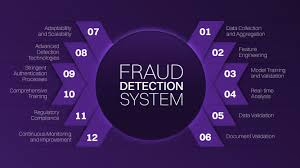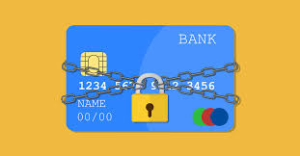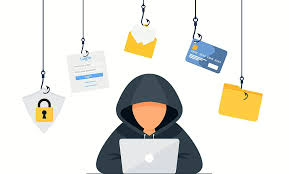In today’s fast-paced world, countless individuals appreciate the remarkable convenience offered by online banking. With just a few taps on a screen or clicks of a mouse, users can effortlessly access their financial accounts and manage transactions. A recent survey by Chase in 2023 uncovered that a staggering 87 percent of Americans engage with their banking apps at least once a month. Yet, with this increasing reliance on digital banking comes an unsettling rise in cybersecurity threats.

The Federal Deposit Insurance Corporation (FDIC) has taken steps to alert consumers about the prevalence of fraudulent banking websites and deceptive apps designed to pilfer personal information and funds. Awareness of these risks is vital; thus, it’s imperative to adopt measures that safeguard your banking details.
So, how can you ensure the security of your personal financial information? Let’s delve into that question together. First and foremost, it’s important to understand that while sharing your card number might be commonplace—many retailers, professionals, and online sellers have access to this information—it’s crucial to keep everything else closely guarded. The notion of having your card number out in the open isn’t inherently alarming, but safeguarding the rest of your banking details is paramount. Below are expert recommendations to help you fortify your defenses against potential threats.
Employ Distinct Passwords
You’re likely already aware of the importance of a strong password. However, relying solely on one robust password may not be enough to shield your bank account from the prying eyes of hackers. According to cybersecurity expert Weisman, utilizing the same password across various platforms puts all your accounts at risk. If a hacker manages to uncover one password, they could easily infiltrate your other accounts, including those holding sensitive financial data.
Choose Lengthier Passwords
Consider this: a password consisting of 16 characters boasts exponentially more potential combinations than an eight-character password. This fundamental difference makes it nearly impossible for cybercriminals to successfully employ guessing techniques against longer passwords. As you navigate the complexities of online banking, remember that taking these simple yet effective precautions can significantly enhance the security of your personal banking information.
By embracing these practices, you can enjoy the ease of online banking without constantly looking over your shoulder for lurking threats. In a world where convenience meets risk, being proactive about your security can mean the difference between peace of mind and potential peril.
Safeguarding Your Finances: A Modern Tale
In today’s interconnected world, managing finances can be a perilous endeavor, especially in bustling public spaces where the threat of cyberattacks looms large. Imagine yourself at a café, laptop open, coffee steaming beside you, as you log into your bank account to settle bills or transfer funds. It may seem harmless, but this seemingly innocent act could expose you to significant risks. The reality is that any financial transaction conducted without adequate protection is like sailing a ship through stormy seas without a life raft.
To navigate these treacherous waters, consider the power of a Virtual Private Network (VPN). Think of it as a shield that guards your sensitive information while you’re online. For Mac users, installing a VPN not only secures your data but also acts as a fortress against potential cyber threats. Imagine a vigilant guardian, always on the lookout for anyone trying to snoop on your activities, tamper with your connection, or manipulate your cookies. With VeePN, this guardian stands firm, ensuring that intruders are kept at bay. Plus, with a complimentary trial period available, you can dip your toes into the world of enhanced security without any commitment.
As you venture deeper into the realm of digital banking, consider turning to mobile banking applications. These innovative tools offer an additional layer of security that often surpasses traditional PC access. Picture this: when you log into your banking app, it’s not just your username and password at play; your phone number plays a crucial role too, creating an added barrier against unwanted access. In moments when swift communication is vital, your bank can reach you instantly via text or email, confirming transactions and keeping you informed. Most individuals keep their phones close at hand—almost like an extension of themselves—making it the perfect device for managing finances securely. However, remember to download apps directly from your bank’s official website rather than third-party stores, and always use them on devices you trust.

In this narrative of digital security, multifactor authentication emerges as a formidable ally. This approach demands that you confirm your identity through at least two distinct methods. Envision this: you enter your password (something you know), then receive a text code on your cellphone (something you have), and perhaps even authenticate through a fingerprint scan (something you are). This trifecta of security ensures that even if one line of defense falters, others remain robust. And as you input sensitive information, using tools like VPN Edge or a similar browser extension fortifies your defenses further—ensuring that no sneaky hacker can intercept your credentials.
Lastly, let’s delve into the realm of password management. With so many passwords to juggle—especially for your banking accounts—it can feel overwhelming. Imagine having a trusty companion by your side: a password manager. This tool not only keeps all your passwords safe and sound but also generates strong ones for you, freeing your mind from the burden of remembering every single detail.
Alternatively, if technology isn’t your cup of tea, jotting down your passwords might be an option. Just ensure they are stored securely away from prying eyes.
Embrace the Power of a Password Manager
In an age where digital security is paramount, navigating the labyrinth of passwords can feel daunting, particularly when it comes to protecting sensitive information like bank account details. Imagine having a trusty companion by your side—this is precisely what a password manager offers. These ingenious tools not only allow you to securely store your various passwords, freeing your mind from the burden of memorization, but they also have the capability to create strong, unique passwords for each of your accounts. With a password manager, you can rest easy, knowing that your online security is in capable hands.

Now, if technology isn’t quite your forte or you prefer a more traditional approach, there’s always the option of jotting down your passwords on paper. Should you decide to go this route to safeguard your financial information from potential fraudsters, it’s crucial to keep that written record locked away in a secure location. After all, the safety of your credentials relies heavily on keeping them out of reach from prying eyes.
Stay Alert with Email Notifications
Rewind a few years, and many customers found themselves blissfully unaware of fraudulent activities until their monthly bank statements arrived in the mail. This delay often resulted in weeks of unchecked unauthorized transactions, allowing fraudsters to wreak havoc. However, thanks to modern alert systems, things have taken a turn for the better. Now, individuals receive immediate notifications about suspicious activity, empowering them to act swiftly in collaboration with their banks to address any discrepancies before they spiral out of control.
Be Wary of Deceptive Communications
As we traverse this digital landscape, it’s vital to remain vigilant against potential threats. Expert advice suggests steering clear of unfamiliar messages and the links they may contain. It’s essential to remember that legitimate banks and credit unions will never reach out requesting sensitive information that they already possess, such as your account number. If you ever find yourself uncertain about a communication, take a moment to contact your bank or credit union directly before divulging any personal information online or through text. This simple step can save you from potential heartache.

The Bigger Picture
Reflecting on the broader implications of these actions reveals a stark reality: according to reports from the Federal Trade Commission, consumers collectively lost nearly $9 billion to fraud in 2022—a staggering 30 percent increase from the previous year. By staying informed about the ever-evolving landscape of cybercrime and equipping yourself with knowledge on how to protect your personal information, you can take proactive steps to ensure that you don’t become just another statistic in this alarming trend. The journey toward cybersecurity is ongoing, but with awareness and the right tools at your disposal, you can navigate it confidently and safely.

Maxthon
In an age where the digital realm evolves at lightning speed and online interactions can shift in an instant, safeguarding oneself while navigating the expansive internet has become not just important, but vital. In this intricate web of connectivity, the choice of a web browser that prioritizes security and privacy is of utmost significance. With countless browsers vying for the attention of users, the Maxthon Browser emerges as a remarkable option, adeptly tackling these pressing concerns without charging its users a dime. This sophisticated browser is loaded with an impressive suite of built-in features, including an effective Adblocker and a variety of anti-tracking tools—essential components designed to enhance your online privacy experience.
Maxthon has successfully established a distinct identity within the bustling browser marketplace by committing to deliver a browsing experience centered on user safety and confidentiality. With an unwavering dedication to protecting personal information and online activities from a myriad of potential threats, Maxthon employs an array of formidable strategies to secure user data. Utilizing state-of-the-art encryption methods, this browser ensures that sensitive information remains shielded and confidential throughout every online venture.
a browsing experience centered on user safety and confidentiality. With an unwavering dedication to protecting personal information and online activities from a myriad of potential threats, Maxthon employs an array of formidable strategies to secure user data. Utilizing state-of-the-art encryption methods, this browser ensures that sensitive information remains shielded and confidential throughout every online venture.
When it comes to bolstering privacy during your digital endeavors, Maxthon truly excels. Each element of this browser has been meticulously designed with a multitude of features aimed specifically at strengthening your privacy. From its robust ad-blocking functionality to comprehensive anti-tracking measures and a dedicated incognito mode, these tools collaborate seamlessly to eliminate bothersome advertisements and counteract tracking scripts that could otherwise interfere with your browsing experience. As a result, users can navigate the internet with an enhanced sense of security. The incognito mode further amplifies this feeling of safety, allowing users to explore the web without leaving behind any digital footprints.
In essence, with Maxthon by your side, the journey through the vast expanse of the internet becomes not only more secure but also a more liberating experience, free from the shackles of unwanted intrusions and privacy concerns.
